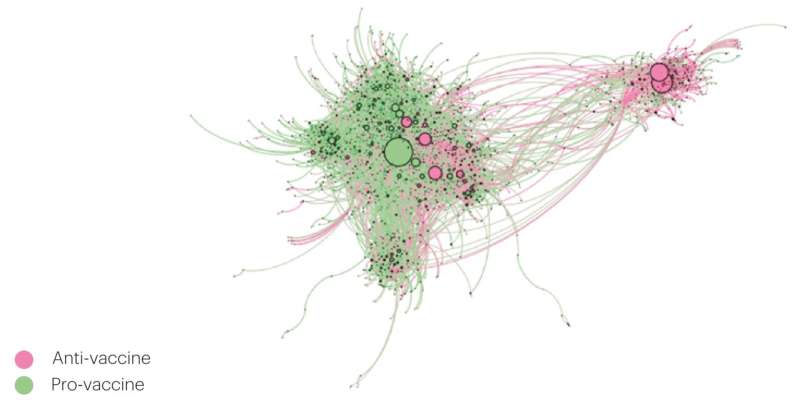Fighting fake news online: Going beyond scientific slogans to connect with people emotionally

Empathy is a more potent weapon than facts when combatting fake news online, according to new research from the University of Surrey.
In a piece of research that looked into fake news and people who are skeptical of COVID-19 vaccines, the team from Surrey found that building rapport is a vital ingredient to winning over those who are distrustful of the benefits of vaccination and health advice.
Key policy recommendations outlined in the research paper are:
-
Create partnerships to support social media activists with technical support, emotional support and support in creative, effective communications to encourage better online chats
-
Governance frameworks that work with social media platforms to reduce misinformation.
Dr. Itziar Castelló, project lead and Associate Professor at the University of Surrey, says that "unfortunately, disinformation and fake news have come to shape critical scientific discourse over the past couple of years. The COVID-19 pandemic should raise alarms within the scientific community and beyond as to why it is critical for us to tackle fake news head-on."
"Our study makes two essential recommendations that can help to fight disinformation. Firstly, disinformation is about emotions and dealing with them means understanding and using emotions to counter that disinformation."
Focusing on three case studies in France, Italy and Ireland, the project considered how to successfully counter fake news online to re-establish and build trust in healthcare.
The study of Les Vaxxeuses in France found that only using facts to tackle misinformation didn't change the hearts and minds of anti-vaxxers or have any substantive effect on vaccine hesitancy.
The team also looked at the pro-vaccine case of IoVaccino—an Italian Facebook group with more than 100,000 members. The study showed that their focus on scientific facts left "no room for doubt or alternative opinions." This resulted in online exchanges that were dominated by confrontation.
The final case focused on the Health Service Executive (HSE) in Ireland in the Human Papilloma Virus (HPV) vaccination which was attacked by an anti-vaccination group called REGRET. The study argues that HSE, in collaboration with the patient advocate Laura Brennan, was able to change the trend and increase the vaccination rates by more than 20 percent in only two years. Laura Brennan's engagement combined a very personal and emotional story with a strong understanding of the facts.
The paper was one of seven commissioned by the British Academy for the About COVID-19 Recovery: Building Future Pandemic Preparedness and Understanding Citizen Engagement in the G7.
Professor Simon Goldhill FBA, the British Academy's Foreign Secretary, says that "this fascinating and timely research will help policymakers better understand how to tackle the scourge of misinformation surrounding the COVID vaccine and hopefully pave the way for greater uptake of the jab. Understanding this issue is an especially important challenge as autumn and winter threaten to bring more COVID cases across the northern hemisphere."
More information: Study report: www.thebritishacademy.ac.uk/do … -Itziar-Castello.pdf
Provided by University of Surrey




















